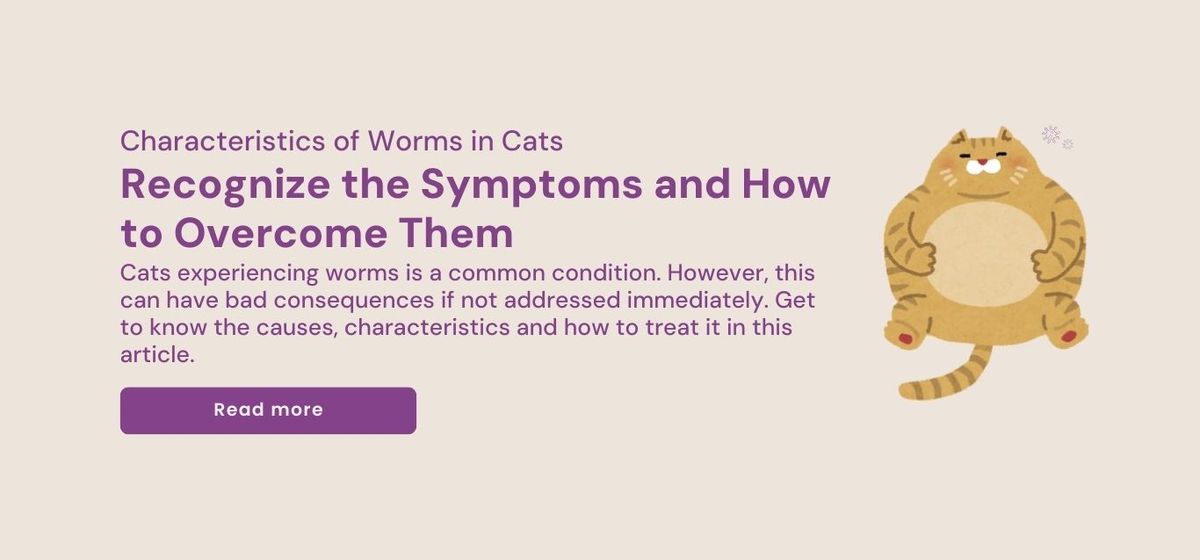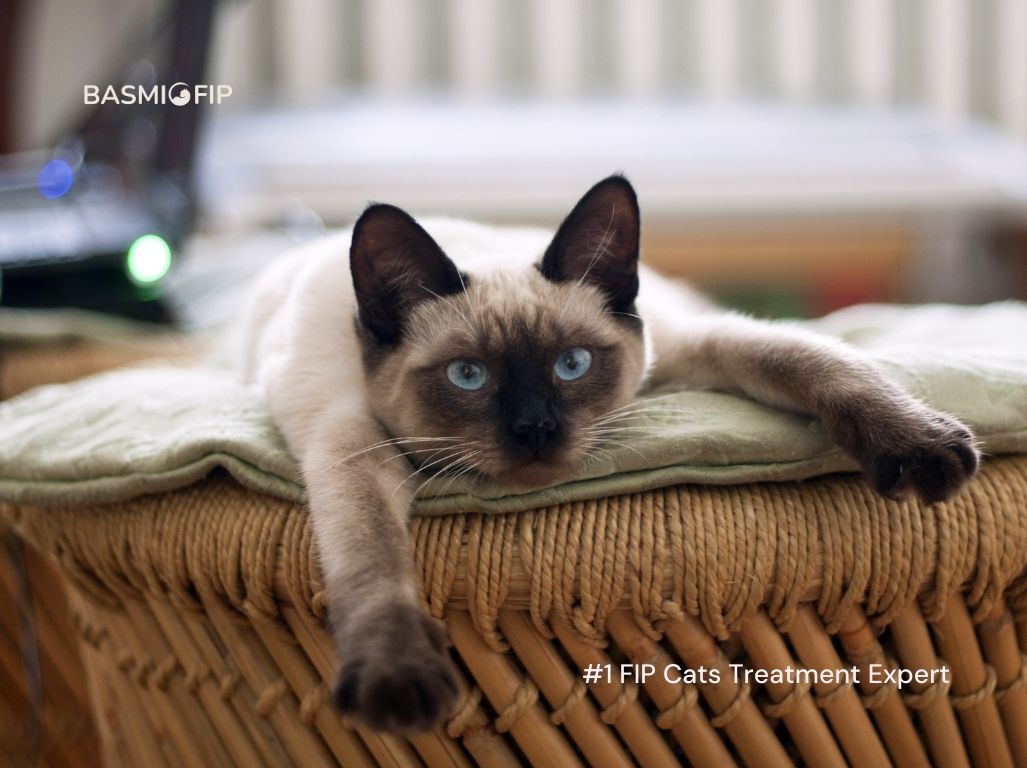
Pet health is a priority for every owner. One often overlooked but potentially significant health issue in cats is worm infestation. It is crucial to recognize the signs of worms in cats to take timely action to protect your furry friend's health.
What Are Worms in Cats?
Worm infestation in cats can be caused by various types of worms, such as hookworms, roundworms, and tapeworms. Worms can affect both adult cats and kittens. Nursing kittens can be infected by worms through their mother's milk.
Signs of Worms in Cats
Several signs can help you identify if your cat has a worm infestation. Some common symptoms of worms in cats include:
Enlarged Belly A common sign is a swollen belly in cats, caused by worms in the cat's digestive tract, resulting in a bloated appearance.
Vomiting Cats with worms may vomit frequently. The vomit might contain worms or be just regular vomit.
Diarrhea Diarrhea is a common symptom of worms in cats. The irritation in the digestive tract caused by worms can lead to diarrhea.
Weight Loss Cats with worms can experience unusual weight loss despite having a sufficient food intake.
Dull Skin and Fur Worm infections can also make the cat's skin appear dull, and the fur can become tangled or shed excessively.
Drowsiness and Lethargy Cats with worms can seem sleepier and more sluggish than usual.
Severe Symptoms of Worms in Cats
In addition to the common signs above, there are also severe symptoms of worms in cats. If your cat shows any of the following signs, immediately take them to the veterinarian:
Blood in Stool If your cat's stool contains blood, it could indicate a severe worm infection.
Anemia Worms can cause anemia in cats, marked by pale skin or gums.
Bleeding from the Nose or Mouth Severe worm infections can also cause bleeding from the nose or mouth.
How to Treat Worm Infestations in Cats
To treat worm infestations in cats, you can follow these steps:
Administer Deworming Medication Give deworming medication prescribed by the veterinarian to kill the worms inside the cat's body.
Maintain a Clean Environment Keep the cat's living environment clean to prevent the easy spread of worms.
Provide Nutritious Food Provide balanced and nutritious food to maintain the cat's health and boost its immune system.
Routine Vaccinations Routine vaccinations can also help prevent worm infestations in cats.
Enlarged Belly in Cats: Worms or FIP in Cats?
Feline Infectious Peritonitis (FIP) is a viral infection caused by Feline Coronavirus (FCoV). One form of FIP is Wet FIP, marked by fluid buildup in the cat's abdominal or chest cavity. Some symptoms of Wet FIP, such as an enlarged belly, resemble the signs of worms in cats. However, FIP is a more serious and dangerous disease with a high mortality rate if not treated promptly.

Signs of Wet FIP in Cats
Several signs of Wet FIP to watch out for include:
Enlarged Belly In Wet FIP, fluid buildup in the abdominal cavity can cause the cat's belly to enlarge.
Fluid in the Abdominal or Chest Cavity Wet FIP is characterized by fluid accumulation in the abdominal or chest cavity, detectable through a physical examination by a veterinarian.
Loss of Appetite and Weight Loss Cats with Wet FIP typically lose their appetite and experience significant weight loss.
Fever Unresponsive to Common Treatment Cats with FIP usually have a fever that doesn't respond to regular antibiotic treatment.
Lethargy and Loss of Interest in Activities Cats with FIP often appear lethargic and lose interest in daily activities.
Respiratory Problems Cats with Wet FIP may also experience respiratory issues due to fluid buildup in the chest cavity.
Differences Between Cats with Worms and Cats with FIP
Although some symptoms of Wet FIP resemble the signs of worms in cats, there are important differences. Worms are caused by a worm infection, while FIP is caused by the FCoV virus or Coronavirus in cats. FIP tends to be more serious, with a high mortality rate, and requires specific treatments like GS-441524, unlike worm infestations. If you suspect your cat has FIP, immediately take them to the veterinarian for proper diagnosis and treatment.
If your cat has been diagnosed with FIP (Feline Infectious Peritonitis) and you want to use worm medication, it's possible to administer the treatment. However, it's important to note that cats with FIP should not receive worm medicine through a drip or injection; only oral pills should be used for safety reasons.
Worm medication in pill form is effective and reduces the risk of complications that can arise from other forms of administration, especially for FIP-affected cats. Always follow your veterinarian's instructions and ensure that you're using the correct dosage and type of medication. If you're unsure about the best treatment method for your cat, consult with your vet to avoid potential harm or adverse reactions.
FIP is a serious disease, but early detection can help improve the chances of a positive outcome. If your cat is showing symptoms of FIP, take them to your nearest veterinarian for proper diagnosis and treatment. If you have any questions or concerns about FIP and its treatment, don't hesitate to contact us on WhatsApp or visit our Instagram for more information.



